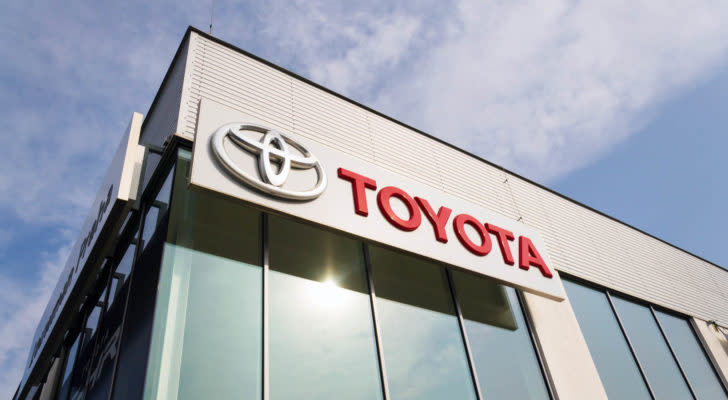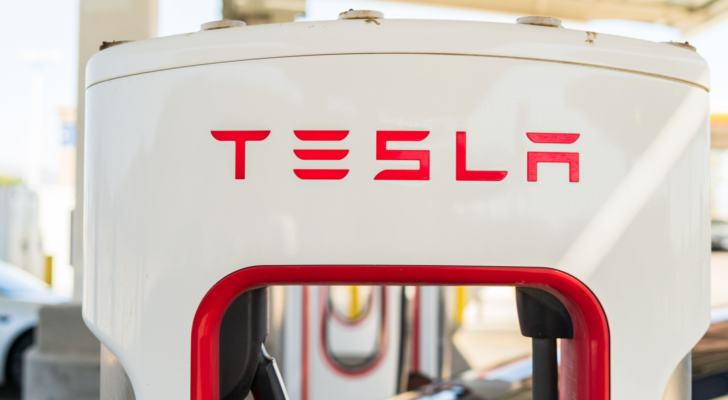UAW Strike 2023: 7 Stocks That Could Actually Benefit From the Disruption
Ford Motor (NYSE:F) may be making some progress in its negotiations with the United Auto Workers labor union, yet for the automaker and its two “Detroit Three” peers, General Motors (NYSE:GM) and Chrysler parent Stellantis (NYSE:STLA), the ongoing UAW strike remains a serious headwind.
Beyond just causing operational disruptions in the near-term, this labor action could have a lasting negative effect on each of these companies.
Not only could increases in pay and benefits weigh on the legacy automaker’s margins. Decreased profitability could hinder their EV pivot efforts as well.
InvestorPlace - Stock Market News, Stock Advice & Trading Tips
So, what does this mean for investors in automotive stocks? As the strike continues, many non-unionized auto manufacturers, both incumbent as well as EV-only, could benefit.
There are also a few non-automakers in the sector for which the strike may be a favorable development as well.
Longer-term, the final negotiated labor contracts could end up being not just favorable for the UAW rank-and-file, but for the non-union automotive companies as well. With this in mind, take a look at these seven stocks.
Honda Motor (HMC)

Source: Jonathan Weiss / Shutterstock.com
Honda Motor (NYSE:HMC) is one of several foreign-based automakers with an extensive U.S. presence that could benefit from the aforementioned auto strike. The Japan-based company has a unionized labor force in its home market, but stateside Honda’s facilities are non-union.
The UAW’s labor action may bode well for HMC stock, in two ways.
First, if Honda’s unionized competition ends up having to agree to higher-than-expected wage/benefit increases, this may cause a further rise in their respective vehicle prices.
This could make Honda a stronger competitor in the U.S. market, where it currently has 7.4% market share.
Second, if increased labor costs force Ford, GM, and Stellantis to scale back vehicle electrification efforts, this could be the benefit of Honda’s own efforts in this area. Already moving higher thanks to a U.S. sales rebound, this strike could end up giving HMC shares another boost.
LKQ Corporation (LKQ)

Source: Shutterstock
It’s not only non-union automakers that could benefit from the UAW strike. For LKQ Corporation (NASDAQ:LKQ), a Chicago-based aftermarket auto parts distributor, this development may also end up being a catalyst.
As a TipRanks commentator pointed out, when discussing possible strike-related tailwinds for LKQ stock, Stiffel analyst Michael Hoffman has argued that, just like how this company benefited from the pandemic supply chain disruptions, disruption in auto parts production related to the strike may have a similar impact.
The caveat to this, though, is that this will only happen if this strike (for now limited to targeted work stoppages) increases, or if the strikes goes on longer-than-expected.
Although some have argued this strike may persist, Ford’s aforementioned progress could signal a fast resolution. We should also note that LKQ has pulled back in recent months, after the company walked back full-year guidance.
O’Reilly Automotive (ORLY)

Source: Jonathan Weiss / Shutterstock.com
O’Reilly Automotive (NASDAQ:ORLY) is another non-automaker that could benefit from the UAW strike 2023.
It all has to do with the possibility of ratified labor agreements between the union and legacy automakers resulting in higher vehicle prices.
The spike in auto prices post-pandemic has already led to Americans holding onto their vehicles longer than ever. Another round of price increases resulting from the strike may mean this trend continues, with vehicles staying on the road for much longer compared to the past.
In turn, this of course means greater demand for aftermarket auto parts.
Hence, a tailwind is on the table for ORLY stock. As I’ve argued previously, ORLY is pricey, and could tumble if growth comes in short of expectations.
However, factoring in this possible strike-related catalyst, O’Reilly may be able to sustain a level of growth necessarily to drive additional gains for the stock.
Rivian Automotive (RIVN)

Source: Michael Vi / Shutterstock
You don’t have to dive too deeply to figure out why the UAW strike could help Rivian Automotive (NASDAQ:RIVN).
As you likely recall, the early-stage electric truck and van maker’s chief competitor is Ford (NYSE:F), which interestingly enough was an early investor in the company, but broke ties in order to pursue truck/van electrification on its own.
Rising competition (including from Ford) has been a major concern among RIVN stock investors, yet said concern has eased more recently, following the release of a solid quarterly earnings report in August.
Investor confidence could keep rising, if the near and long-term impact of the strike hinders Ford’s ability to grab a large share of the electric truck/van market.
Although Rivian still has a lot to prove, the strike could enable it to ramp up production, tap into growing demand for electric trucks, scaling to profitability.
Toyota Motor (TM)

Source: josefkubes / Shutterstock.com
If you’re looking for stocks to buy that may benefit from the auto strike, add Toyota Motor (NYSE:TM) to your watchlist. Like Honda, this Japanese automotive giant’s U.S. plants are non-union.
The same possible benefits from this arrangement for Toyota’s long-time competitor in the U.S. market are also on tap.
Perhaps, even more so. Toyota is the second largest automaker by U.S. market share, but GM has been gaining share at its expense recently. This could change if UAW negotiations lead to higher prices for GM, Ford, and Stellantis, enabling Toyota to better compete on price.
As Goldman Sachs analyst Kota Yuzawa argued last month, Toyota’s EV potential is underappreciated by the market.
This may now be especially the case, if the strikes hinder EV progress from the “Big Three.” A greater-than-expected EV ramp-up could drive a big boost down the road for TM stock.
Tesla (TSLA)

Source: Arina P Habich / Shutterstock.com
Among non-union automakers, Tesla (NASDAQ:TSLA) may benefit the most from the UAW strike.
As the incumbent automakers have ramped-up their move to become primarily builders of EVs rather than gas-powered vehicles, the resultant rising competition has forced the EV market leader to cut prices, putting the squeeze on margins.
Falling margins have made even some TSLA stock fans skeptical about its potential to sustain both the company’s rate of growth, as well as its share price. Trading for around 71 times earnings, which is a multiple leaps and about above that of incumbent automakers. Each of them trade for less than 10 times earnings.
Still, if the strike sets back the “Detroit Three” in terms of labor costs/EV progress, while Tesla successfully brings down its manufacturing costs further, the company could remain the “king of EVs,” and TSLA could sustain its substantial valuation premium.
Volkswagen (VWAGY)

Source: multitel / Shutterstock.com
The UAW may have leverage over the Detroit automakers, but it has been unsuccessful in its organizing efforts at Volkswagen’s (OTCMKTS:VWAGY) U.S. production facility. A lack of U.S. labor troubles may not help the company gain more market share immediately.
Yet when it comes to strike-related EV setbacks among Ford, GM, and Stellantis, there may be a potential benefit for this German-based automaker, and for VWAGY stock. Per current consensus, Volkswagen is falling behind both Tesla and China-based EV makers.
However, while the jury’s still out as to whether VW can gain back lost ground in China, if the strike hinders the EV transformations of the unionized U.S. automakers, there may be opportunity for Volkswagen to capture a larger share of the American EV market. The European Union’s crackdown on Chinese-made EVs could also help Volkswagen sustain high market share in its home continent.
On the date of publication, Thomas Niel did not hold (either directly or indirectly) any positions in the securities mentioned in this article. The opinions expressed in this article are those of the writer, subject to the InvestorPlace.com Publishing Guidelines.
Thomas Niel, contributor for InvestorPlace.com, has been writing single-stock analysis for web-based publications since 2016.
More From InvestorPlace
Musk’s “Project Omega” May Be Set to Mint New Millionaires. Here’s How to Get In.
ChatGPT IPO Could Shock the World, Make This Move Before the Announcement
The Rich Use This Income Secret (NOT Dividends) Far More Than Regular Investors
The post UAW Strike 2023: 7 Stocks That Could Actually Benefit From the Disruption appeared first on InvestorPlace.
